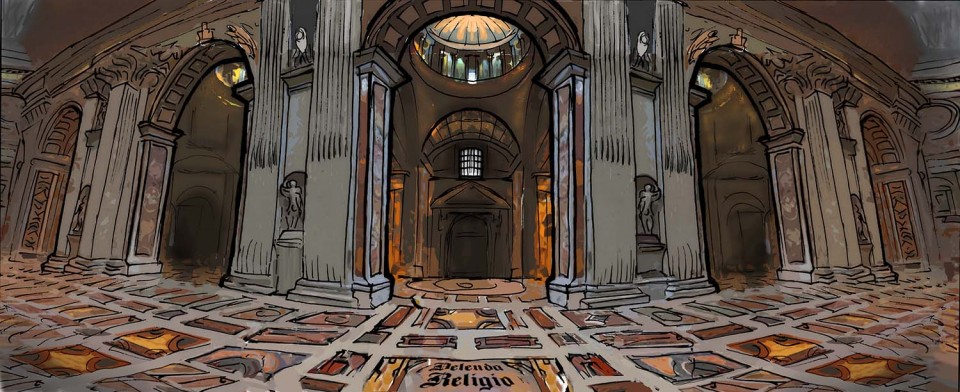“Precarious financial situation” for “down and out, destitute”.
“A dodgy deal” for “a criminal swindle”.
“Second childhood” for “geriatric dementia”.
This third example was brought home to me after a week in the ward of Advanced Geriatrics (I still don’t know why they put me there . . . P.S. I have since discovered that like the Baby Jesus, for whom there was no room in the inn, the only bedroom available for Pore Ole Frank was in the Geriatrics Ward. I was the youngster, 79 and rising, among the Ancients.) There was nothing child-like or charming in the condition and behavior of the people around me in the reeducation facility, where I got to see the really old folks otherwise confined to their rooms. One or two, out of their minds, sounded like little children. Most could not do much more than to stare blankly into space, if not groan in pain or despair, under the weight of their solitude and the quasi-total incapacity of their deformed, emaciated bodies.
What struck me further was the way the staff treated totally dependent octogenarians and nonagenarians like these. Their admirable patience and kindness and good humor was nothing short of exemplary. But one had to wonder – especially with the totally silent patients – whether or not they appreciated the infantile exercises they were gently invited to perform, and the exaggerated flattery and encouraging “bravos” usually reserved for children’s exploits in learning to swing, to splash in a shallow pool, to catch a ball or ride a tricycle. One suspects a latent lucidity in some patients, treated like children, and their inexpressible embarrassment and annoyance at the well-meant infantilization. Others’ regression is evident in their naïve, childish appreciation of being congratulated for minor physical exploits like standing up or sitting down in their wheelchair. They have the mental age of toddlers.
I could not help thinking of what I can expect to experience myself in the years ahead. Which will be worse : the physical pain, the lack of autonomy or the humiliation and indignity of senescence ? But I also found an analogy between the way medical staff infantilize their invalid patients, and the way religious belief is instilled in children and reinforced in adults.
Children believe everything we tell them. We do not hesitate to lie to them (“Mummy” – who has just died – “has gone away for a while”; “That pain in your tummy will be gone in the morning”) and delighting them with fairy-stories they necessarily take to be true. We feel we need not tell them the truth, which they will discover soon enough. We seek to protect them for as long as possible from the harsh realities of the human condition. (The classic cinematic example is Roberto Benigni’s “La Vita è Bella”, the story of a father’s effort, in a German concentration camp, to get his little boy to believe it was all a game.)
Children grow out of childhood and its illusions as we ourselves did. Few adults believe in the Tooth Fairy or Santa Claus. The mystery is why the vast majority never question the existence of God, Angels, Heaven and Hell in an invisible world for which there is not a shred of evidence. The only explanation must lie in a profound need to find meaning in life and even in death, which surely cannot be the end of personal existence. The truth which is meant to set us free, can sometimes be just too hard to face. Infantile credulity is a charming innocence in children, an embarrassing lack of maturity in adults.
RIDENDA RELIGIO

No Tooth Fairy or Santa Claws?????!!!!!! Nooooooooooooo!!!!!!! Boohoo……sniffle………….
LikeLiked by 1 person
Even as adults we accept “on faith” quite a lot which is really inexplicable (and I’m not thinking of that Shroud).
I read in this morning’s newspaper that “in our little corner of the cosmos everything is flying apart quite a bit quicker than we’ve thought”. There is speculation that this local rate of increased “flying apartness” is caused by an unproven force called dark radiation which would be connected to dark matter and dark energy (note God was not mentioned) which have never been directly detected but the maths of the universe’s expansion can only be explained if they exist. (I refrain here from making the flip comment that God doesn’t seem to have got his/her/its act together too well on this matter).
The implications of the finding about the greater than realised flying apartness are serious – although it won’t happen in my, your or indeed anyone’s lifetime – the possibility of the big ripping apart is at least some tens of billions of years in the future, somewhat sooner though than the slow heat death of the universe which is some tens of trillions of years away.
We don’t know with absolute certainty that any of the above is going to happen. We are, I suggest, on safer ground though in accepting the predictions of the scientists who tell us that these things will happen than those who accept the childrens’ stories about gods and other monsters.
LikeLiked by 2 people
“Who can explain it, who can tell you why ? Fools give you reasons, wise men never try.” For readers in the South Pacific and the rest of us Up Over, it would seem that Hollywood musicals run rings around theologians. Intelligent Design ? The Universe is chaotically running amok ! And there are still non-atheists who believe in the validity of the “teleological argument”. The Universe has no purpose; nor do we. So as recently resurrected Lumen says, citing my man Horace and Robyn Williams, “Carpe diem !” Make the most of your life while it lasts; it’s the only one you’ll ever have.
LikeLiked by 2 people